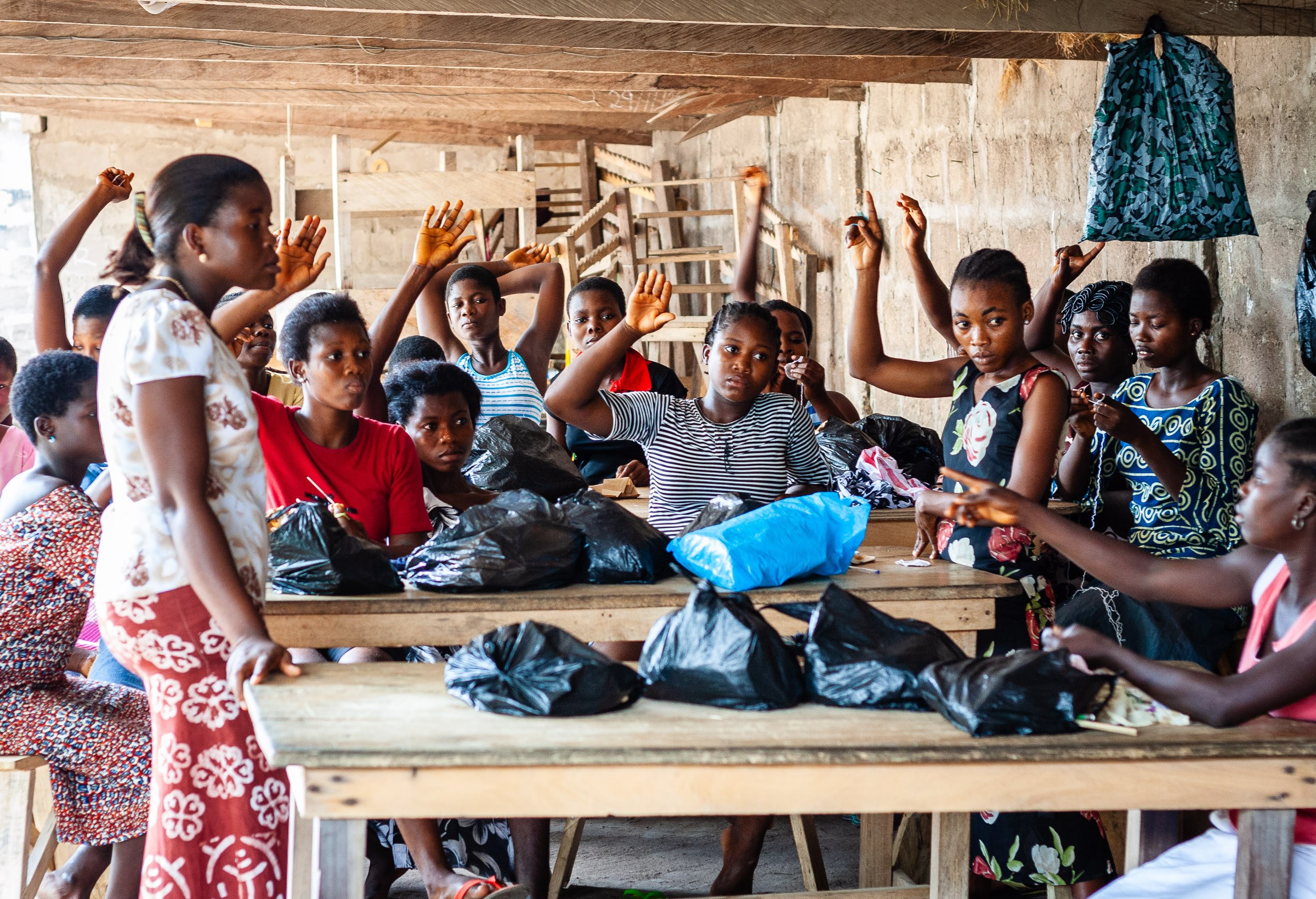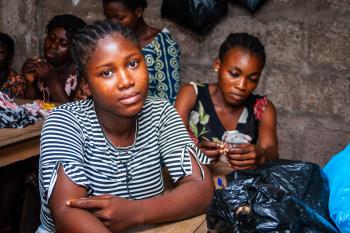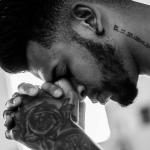
One million dollars can go a long way. It can buy a beautiful home, cover the cost of lavish vacations and allow people to dress beautifully and live quite comfortably. But it also can be used for greater good. In loving hands, it can support Christian missions that help people in desperate need. And that’s exactly what happened with the $1 million that Alfred Street Baptist Church in Alexandria, VA, recently raised to rescue enslaved African girls.
Who are the Trokosi Girls?
The church’s senior pastor, the Rev. Howard-John Wesley, became aware of modern-day slavery in Ghana during a trip to the African nation.
While there, he was introduced to the ancient and little-known Trokosi religion and its practice of enslaving young girls for the pleasure of its religion’s leaders. Sadly, the girls’ own families are complicit in the practice.
Trokosi is generations-old religion in which young girls are enslaved at religious shrines to supposedly atone for sins such as rape, murder, theft or robbery that their relatives have committed.
CBE International (Christians for Biblical Equality) explained that when serious crimes are uncovered, families fear the gods will punish them rather than the perpetrators. Consequently, the father of the house takes one of his virgin daughters to a Trokosi shrine and leaves her there to become the “property” of a priest.

The enslaved African girls live in constant poverty, go without proper food and are forced into hard labor in nearby fields. At a young age, they also suffer the horrors of sexual abuse at the hands of elders and priests. Babies born of the abuse become the responsibility of the slaves’ families, per The Conversation, an independent, nonprofit news organization.
A Difficult Challenge
Outsiders knew little about the Trokosi religion before the 1990s. And enslaved African girls and women generally remained captives for life.
If they tried to escape, their families almost always returned them to the shrine, CBE International said. When they died, their families were obligated to provide new virgins to shrine leaders. If they didn’t, the families lived in fear of the gods’ wrath.
Ghana outlawed forced labor in 1998, but The Conversation said the practice “continued because governmental agencies responsible for enforcing the law didn’t have the courage to arrest the family members, priests or shrine owners.”
“Most of the people that live in the southern Volta Region of Ghana, southern Togo, and southern Benin believe and practice the Trokosi system,” the news outlet reported.
One outsider who witnessed Trokosi practices is Wisdom Mensah, a visiting instructor at the University of West Florida. He said he helped liberate 4,000 women and children from 52 shrines in the 1990s and early 2000s.
“…a lot of the Trokosi girls/women believe that they have to go through the punishment to save their families. But how strong do you have to believe in something, that you send someone who is a blood relative, and who is completely innocent, into this system to suffer for the whole family?” another person wrote about the system.
Christianity in Action
“It was our trip to Ghana that exposed us to the slave trade industry that you wouldn’t believe still existed in 2024,” Rev. Howard-John Wesley said.
When members of his Alfred Street megachurch learned about the lives of little girls as young as six years old — or even younger — they felt they had to do something. And they did.
Congregants began setting aside money they would have spent on luxury items, favorite foods, drinks and other non-essentials to help rescue and rehabilitate as many enslaved African girls as possible, according to various Christian news sources.
Rev. Wesley said that about 14,000 people participated in the fund-raiser. They raised $870,000 during a 40-day fast, and the church used funds from its Tithe-the-Tithe Initiative to bring the total to $1 million, according to Faith on View, a Christian news source.
Wesley and the Rev. Marcia M. Norfleet from Alfred Street Baptist Church presented the donation to the Rev. Gina Stewart, president of the Lott Carey Baptist Foreign Mission on Aug. 13.
“Lott Carey, a predominantly Black organization long known as the Lott Carey Baptist Foreign Mission Society, has traditionally had fundraisers as part of its annual gathering, which this year occurred from Monday through Thursday (Aug. 12-15),” Religion News Service explained.
Prior to this year’s convention, Stewart had announced she wanted to raise $1 million on the last night of the meeting. But she didn’t have to wait thanks to Rev. Wesley and his congregation.
The pastor said that Alfred Street Baptist Church “really felt like God gave us an opportunity to make a difference in freeing some of these young ladies” by raising money in advance of the convention.
Approximately 2,000 people attend Alfred Street Baptist Church services each week, and some 20,000 viewers watch online, the Religion News Service noted. The church, which was established during Thomas Jefferson’s presidency, emphasizes children’s ministries and missions through 80 active ministries.
How the Donation Will Help
The Alfred Street Baptist Church’s donation will help support the operation of eight existing schools, build additional schools, teach the girls Christian values and reeducate them about the Trokosi religion. The vocational center trains girls and women in basket weaving, baking, sewing and other skills to help them become self-sufficient.
Girls and women who complete vocational training may receive loans to start or expand their own businesses. And a Freedom Fund will help ensure that money is available to free more girls from Trokosi in the future.
The $1 million donation will change the lives of many girls and women, but many others remain slaves. In making the donation, the church is putting a spotlight on the horrors that thousands of Ghanaian women have experienced over the years. It also is setting an example for other Christian organizations.
Abolishing Slavery
An estimated 35,000 young enslaved African girls and women need help now, and the number is growing, CBE International said. It’s hard to imagine.
Ghana is determined to abolish slavery, and organizations such as the Alfred Street Baptist, Baptist missions, CBE International and others are helping.
But it’s an uphill battle.
“Proverbs 31:8 implores us to ‘speak up for those who cannot speak for themselves; ensure justice for those being crushed’ (NLT), CBE International reminds us.
“It is our mandate as faithful followers of Christ, to stand up to and to speak out against injustice – against doctrines of control, power and patriarchy that have bound so many….” the organization said. Learn more about the enslaved African girls and women and the efforts to free them here.


